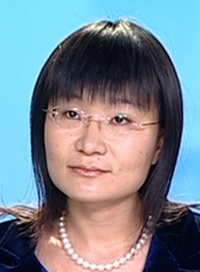Recently, the United States announced the indictment of five Chinese military officers on allegations of cyber theft. Along with China-Russia exchanges during the 4th Conference on Interaction and Confidence-Building Measures in Asia (CICA) Summit, tension in the South China Sea and the Ukraine crisis, cyber security has once again raised the question of how great powers, especially the US, China and Russia should get along with each other.
All of the three countries are important players in the world. The ideal situation is that they can shrug off disputes and work sincerely with each other. In this case, world peace and prosperity will be secured.
However, the ironic reality is that the US has been pressuring both Russia and China, which has forced the latter two countries to strengthen their collaboration.
Concerning Ukraine, the US threatened to expand sanctions on Russia, and moreover, encouraged European countries to find alternative energy supplies in order to reduce the dependency on Russian energy. China has been criticized by the US for being assertive and irresponsible in the East China Sea and South China Sea disputes. Most recently, cyber security was brought up again as an accusation against China.
In this context, China and Russia have drawn closer to each other. Russian President Vladimir Putin paid a state visit to China and attended the CICA summit. China and Russia issued a “substantial” joint statement. As both sides usually do, they reaffirmed mutual support for each other’s core interests, including sovereignty, territorial integrity and national security. China and Russia also presented coordinated positions on a number of issues in the statement. What is prominent was that both countries elaborated on some new hot topics such as the Ukraine situation and information security. Since Russia was excluded from the Group of Eight, China and Russia spoke highly of the multilateral frameworks for communication and cooperation, including the Group of Twenty (G20), BRICS, Shanghai Cooperation Organization and the China-Russia-India regime. China and Russia attached great importance to the G20 and viewed it as a key forum for international economic cooperation. In the same period of CICA, the two countries conducted joint navy drills.
It seems that the confrontation of interests of the major powers has escalated and the great power game once again dominated the international arena. Some media hyped that the “China-US new type of relationship is in danger”, a “China-Russia alliance against the US” or a “mounting risk of a new Cold War”.
However, the three great powers are aware that once world peace and stability is undermined, none of them will win. With the latest developments, it is time for the big countries to think about the principles that guide the relationship, instead of suffering from suspicion and concern.
The first and maybe most important principle for great powers to get along with each other is mutual respect. Selfishness is not helpful. All countries should avoid serving their own interests at the expense of the others’. Unfortunately, the US has gone too far. The country is anxious to protect its own interests, especially its military presence in the South China Sea. Under this goal, the US from time to time took biased positions concerning territorial disputes in waters, and used excuses such as “freedom of navigation” and “international rules” to interrupt China’s legal actions and protect sovereignty.
The spirit of the idea of the new type of relationship between major powers is equality and mutual benefit. China proposed this idea and the US has agreed to work with China. It is groundless for the US to demand that China unilaterally show more support or make more contribution to US interests. It is unlikely for China to back up US decisions concerning the Ukraine issue or to sacrifice sovereignty in the South China Sea, in exchange of favorable feedback from the US.
Concerning cyber security, China admits that the US has an obvious technological advantage that cannot be matched by other countries. However, China does not approve US attempts to divide espionage from commercial theft, and utilized the latter to pressure China.
The second principle for a great power relationship is inclusiveness. “Zero-sum” thinking is outdated. The world or the pacific is big enough to accommodate all countries’. China does not aim at regional leadership or an exclusive presence. At the same time, the US should not overreact to China’s cooperation with neighboring countries. It also sounds harsh to China and Russia that the US-Japan alliance is “playing a leading role in ensuring a peaceful and prosperous Asia-Pacific.” On the other hand, the major powers should deal with disputes with a positive approach. Confrontation or sanctions will easily escalate the tension and put all the related parties at risk, not only in Ukraine but also in the South China Sea.
Last but not least, cooperation is also needed for great powers relations. It is true that the big countries are more capable. However, in the context of globalization, it is impossible for any country in the world to achieve economic development or maintain security all on its own. To strengthen cooperation is an inevitable necessity for major powers. As for China and US, besides economic cooperation, the two can talk about cooperation in relation to many issues, including issues such as disaster warning and relief, anti-piracy and environmental protection.
The world’s major countries are undergoing change, and the aim of these countries should not be to seek “absolute” comfort. The great powers should pay attention to the comfort of the others and will probably discover that “relative” comfort is a more stable and sustainable option.
Su Xiaohui, Deputy Director, Department of International and Strategic Studies, China Institute of International Studies.

